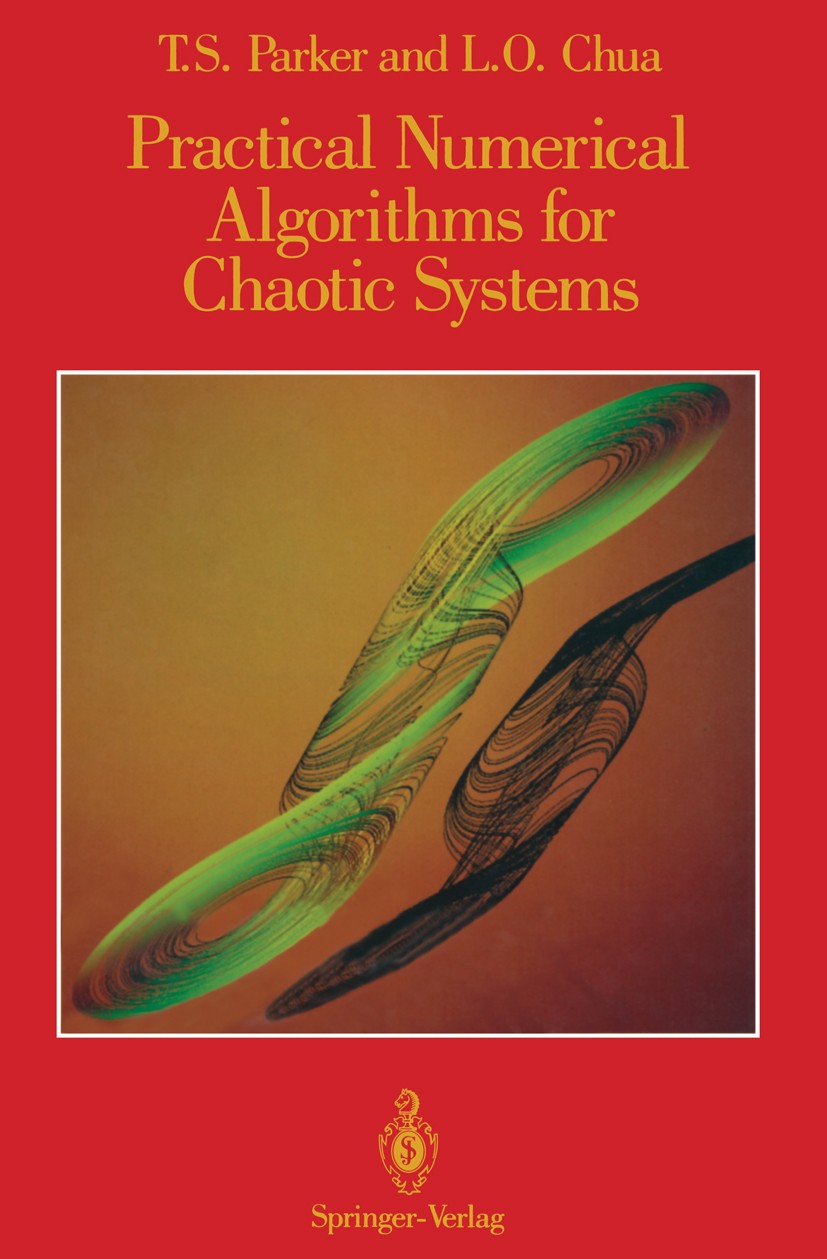| 书目名称 | Practical Numerical Algorithms for Chaotic Systems | | 编辑 | Thomas S. Parker,Leon O. Chua | | 视频video | http://file.papertrans.cn/754/753168/753168.mp4 | | 图书封面 |  | | 描述 | One of the basic tenets of science is that deterministic systems are completely predictable-given the initial condition and the equations describing a system, the behavior of the system can be predicted 1 for all time. The discovery of chaotic systems has eliminated this viewpoint. Simply put, a chaotic system is a deterministic system that exhibits random behavior. Though identified as a robust phenomenon only twenty years ago, chaos has almost certainly been encountered by scientists and engi neers many times during the last century only to be dismissed as physical noise. Chaos is such a wide-spread phenomenon that it has now been reported in virtually every scientific discipline: astronomy, biology, biophysics, chemistry, engineering, geology, mathematics, medicine, meteorology, plasmas, physics, and even the social sci ences. It is no coincidence that during the same two decades in which chaos has grown into an independent field of research, computers have permeated society. It is, in fact, the wide availability of inex pensive computing power that has spurred much of the research in chaotic dynamics. The reason is simple: the computer can calculate a solution of a nonlinear | | 出版日期 | Book 1989 | | 关键词 | Nonlinear system; algorithms; bifurcation; stability; system | | 版次 | 1 | | doi | https://doi.org/10.1007/978-1-4612-3486-9 | | isbn_softcover | 978-1-4612-8121-4 | | isbn_ebook | 978-1-4612-3486-9 | | copyright | Springer-Verlag New York Inc. 1989 |
The information of publication is updating

|
|
 |Archiver|手机版|小黑屋|
派博传思国际
( 京公网安备110108008328)
GMT+8, 2025-12-13 23:31
|Archiver|手机版|小黑屋|
派博传思国际
( 京公网安备110108008328)
GMT+8, 2025-12-13 23:31


